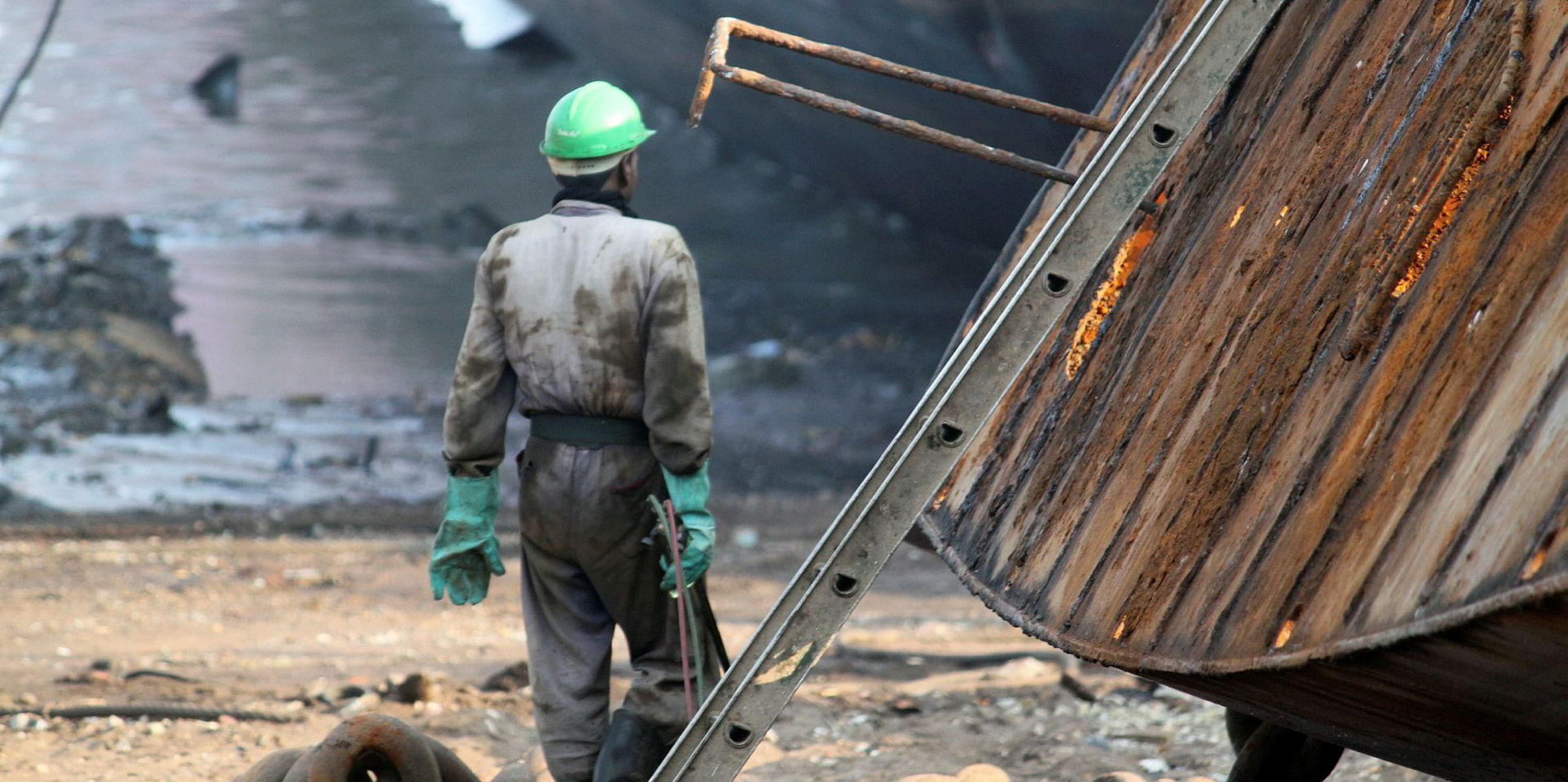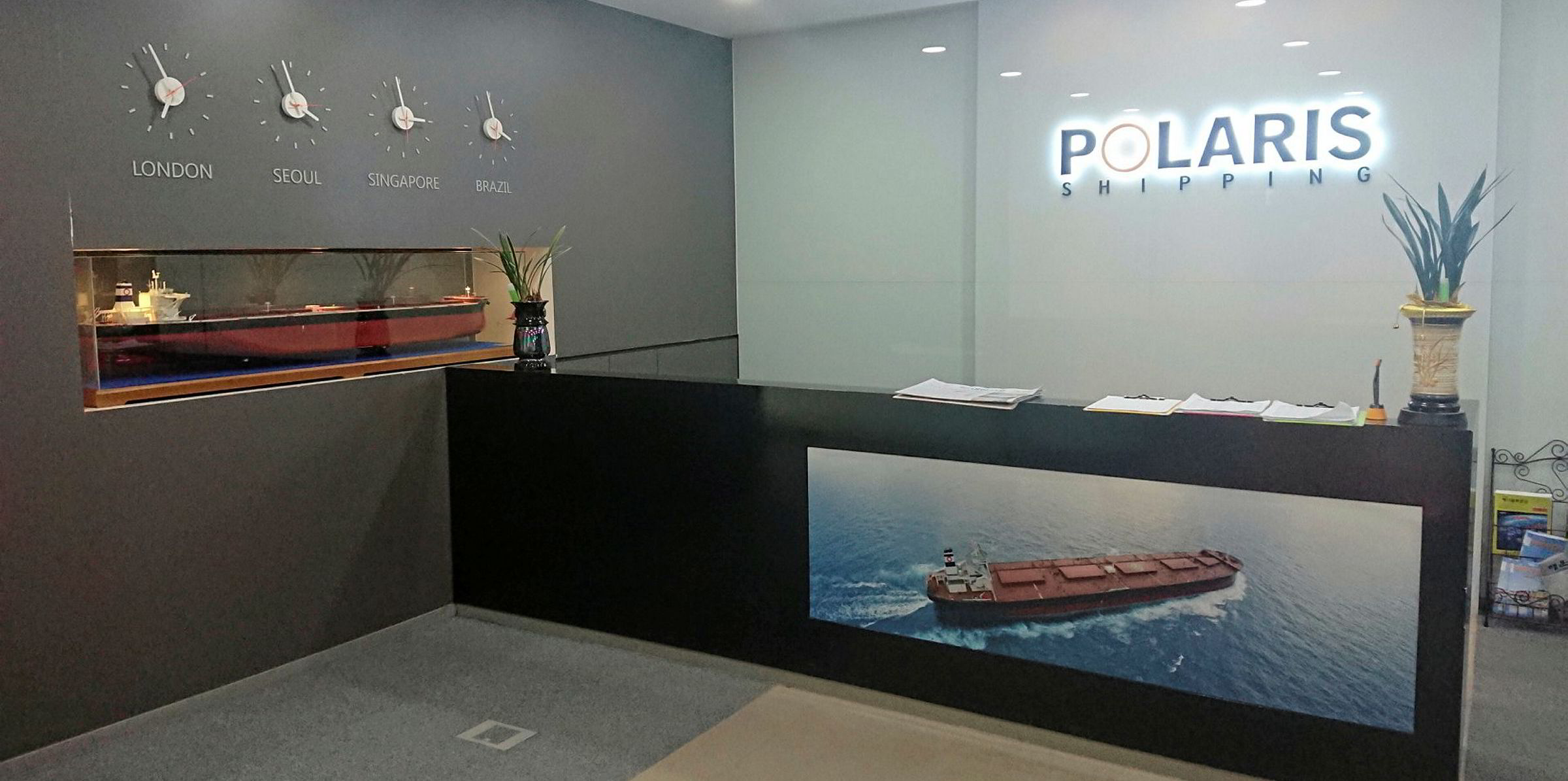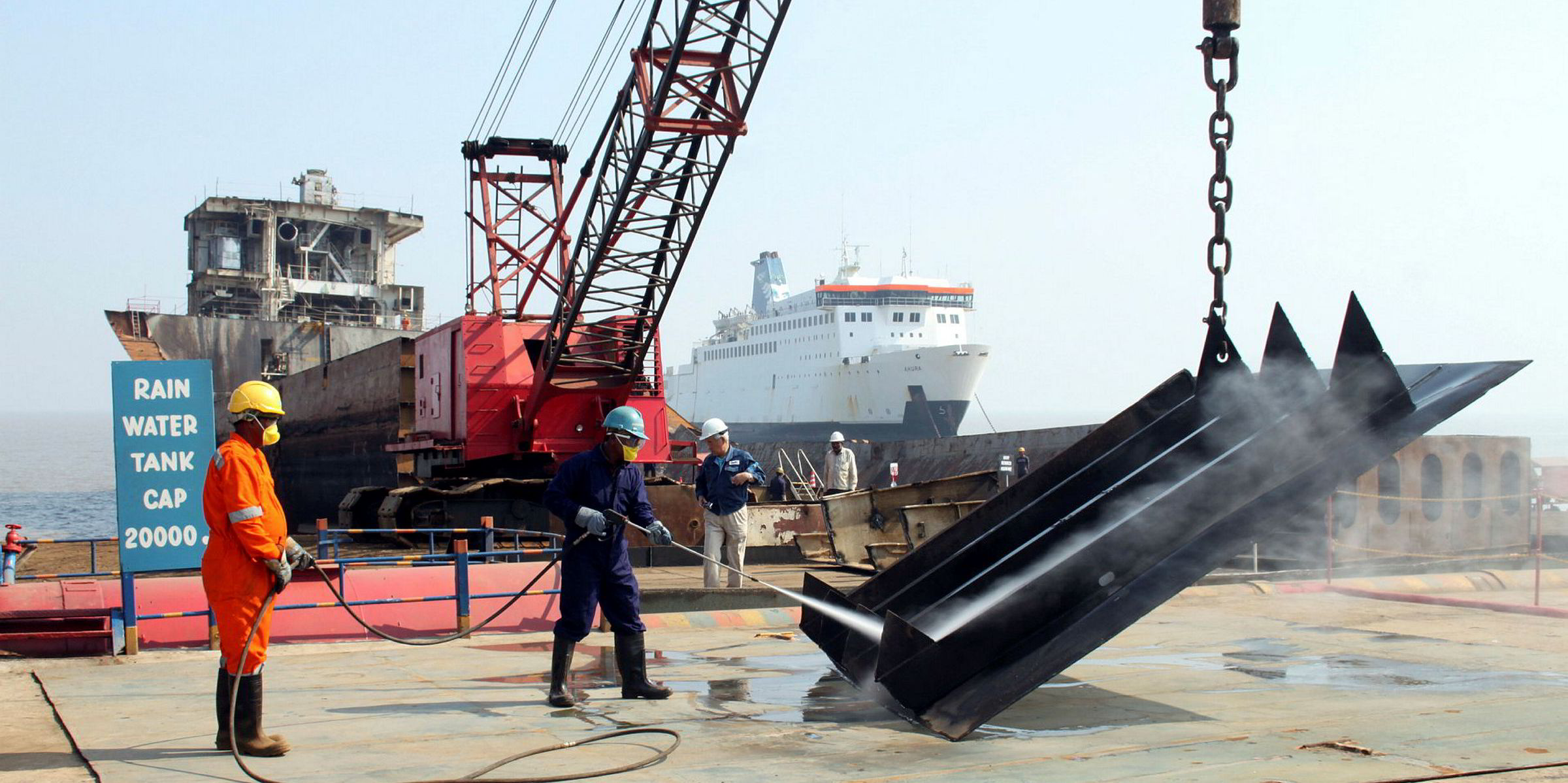Shipowners are rushing to agree scrap deals ahead of any potential second wave of coronavirus in Asia.
The market for VLOCs in particular has enjoyed a surge in recent days, albeit with achieved prices falling.
"With beachings taking place in the subcontinent, including those with foreign crew, this has spurred the market into fierce action," demolition broker Ed McIlvaney said.
Sales last week neared the total over the past two months, he added. Over that period, beachings were forbidden in India, Pakistan and Bangladesh in efforts to contain the pandemic.
Foreign nationals still need to complete 14 days of quarantine at sea or at anchorage before beaching ships.
Owners moving quickly

McIlvaney said there had been positive movement from the shipowners' side as they "urgently" seek to dispose of their older units as soon as possible, in case there is "an unwanted second phase of the coronavirus".
But he added: "The market unfortunately is still hearing of pre-lockdown sales having to be resolved."
These include two Global Ship Lease containerships — the 2,262-teu GSL Matisse and Utrillo (both built 1999) — sold in an enbloc deal in the United Arab Emirates.
The seller and buyer have now reached an amicable resolution at $330 per ldt each, down from $400 originally, McIlvaney said.
With the Utrillo weighing in at 11,700 ldt and the GSL Matisse at just under 12,000 ldt, the deal is now worth an estimated $7.81m enbloc.
Big names in shipping

Big names such as Eyal Ofer's Zodiac Maritime and Polaris Shipping have sent vessels to breakers in recent days.
As TradeWinds reported last week, Zodiac sold its first capesize for demolition in more than two years when it offloaded the 265,000-dwt Guofeng Enterprise (built 1993) for recycling in India at $278 per ldt. With the ship weighing in at nearly 36,400 ldt, that implies a gross sale price of $10.1m.
Polaris has sold two VLOCs for recycling at a time when owners of large bulkers are increasingly forced to accept lower prices, demolition brokers said.
The South Korean shipowner is said to have sold the 291,000-dwt Stellar Samba (built 1994) and 288,000-dwt Stellar Iris (built 1995) for $295 per ldt.
That would put the gross price of the 39,900-ldt Stellar Samba at $11.8m and the 35,000-ldt Stellar Iris at $10.3m.
The deals come as the market is watching Pan Ocean's effort to sell its oldest capesize in a recycling sale.
Market sources said the South Korean shipowner is taking offers on its 149,000-dwt New Joy (built 1998) for a demolition sale.
The vessel is available “as is” in South Korea in the middle of July. It is expected to bring in about $300 per ldt, or more than $5m.
Crew changes allowed
The deals come amid growing signs of reopening in recycling markets the Indian subcontinent.
In a move that will further pave the way for demolition deals, India’s Directorate General of Shipping (DGS) has agreed a new set of crew-change protocols to allow seafarers on ships heading for scrapping in Alang to disembark and go home.
Crew disembarkation in India has not been permitted since the nation introduced strict measures to prevent the spread of coronavirus on 24 March.
Indian crews were allowed to disembark from three weeks ago.
The move to open the door to foreign crew follows a call from the local Ship Recycling Industries Association (SRIA).
SRIA told the DGS that its members could not take advantage of a high number of ships seeking demolition and low demolition prices because foreign crew cannot sign off end-of-life ships in India.
In response, the DGS announced the new procedures for crew at shipbreaking yards —which are expected to make demolition deals to Alang easier to complete — would enter into force from the beginning of this week.
The new protocols for foreign crew only apply to the Alang and Bhavnagar regions.
As part of the procedures, the ship's master is expected to monitor the health of the crew and provide local authorities with a temperature chart and health declaration. Crew must also wear protective equipment, such as masks and gloves, and luggage and personal effects must be disinfected.
The seafarer must also be tested for coronavirus on arrival in Alang. Any seafarer testing positive will have to be held in quarantine.
The crew must be held in closed accommodation, booked by the shipmanager, until a flight home can be arranged.
The move also comes as India starts to slowly loosen its lockdown restrictions despite a continued increase in coronavirus cases in the country.
Shopping malls, restaurants and places of worship are now allowed to open.
Trond Lillestolen contributed to this story.







